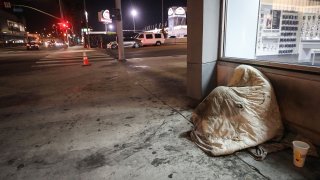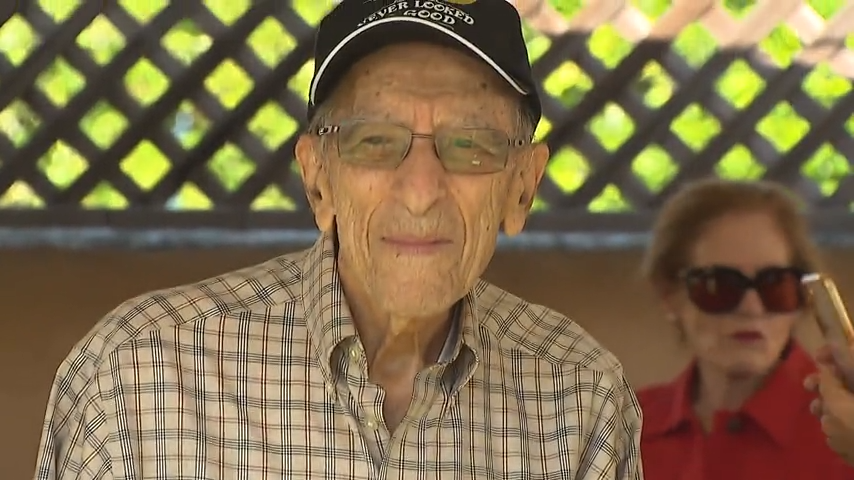
Nearly 270,000 kindergarten through 12th students in California experienced homelessness during the 2018-2019 school year, according to a report released by UCLA.
The report issued Monday by the UCLA Center for the Transformation of Schools also found that one in five community college students, one in 10 California State University students and one in 20 University of California students experienced homelessness during the year.
According to the report, "State of Crisis, Dismantling of Student Homelessness in California," the number of students experiencing homelessness in the state has increased by nearly 50% in the past decade. Given the disruption and economic fallout of COVID-19, the report's authors contend the number of students now experiencing homelessness is likely higher.
"Dodger Stadium is empty these days, but can hold some 56,000 people for a big game," said Joseph Bishop, director of the UCLA Center for the Transformation of Schools and lead author of the report.
"California could fill the stadium with students experiencing homelessness almost five times and still probably need to use the parking lot for overflow. But our students are not in Dodger Stadium. We are talking about young people who may be sleeping on the streets, in cars or in shelters. This is a crisis that deserves immediate action."
According to the data, California's population of students experiencing homelessness is disproportionately Latino and Black, with Latino accounting for seven in 10 of those students. While Black students make up just 5% of the student population, they represent 9% of students experiencing homelessness.
"Homelessness impacts Latinx and Black students most with real and negative consequences," said Lorena Camargo Gonzalez, a UCLA researcher and report co-author.
Local
Get Los Angeles's latest local news on crime, entertainment, weather, schools, COVID, cost of living and more. Here's your go-to source for today's LA news.
"The prevalence of Latinx and Black youth experiencing homelessness requires more racially and culturally responsive strategies in education practice and policy."
The report also examines the implications for student learning and success. An analysis of patterns in state data from the 2018-2019 academic school year has revealed that students experiencing homelessness are twice as likely to be suspended -- 6% versus 3% -- or chronically absent -- 25% versus 12% -- have a lower high school graduation rate -- 70% compared to 86% -- and nearly half as likely to be UC/CSU-ready -- 29% compared to 52% -- than their non-homeless peers.
Drawing on interviews with more than 150 students, educators, and homeless liaisons, the report identifies a need for greater capacity and dedicated funding to address the needs of homeless students.
The federal McKinney-Vento Homeless Assistance Act is intended to support the educational success of students experiencing homelessness. But just 106 of 1,037 school districts -- 9% -- in California received federal funding to meet the mandates of the law.
"The 106 MVA subgrants, which total over $10 million, touch about 97,000 young people or about one in three students experiencing homelessness in the state," Bishop said.
"Meanwhile, a majority of students and local education agencies receive no dedicated federal funds to support the educational success of students experiencing homelessness."
The report is a project of the UCLA Center for the Transformation of Schools. Funding for the research has been provided by the Raikes and Stuart Foundations, the Chan Zuckerberg Initiative and SchoolHouse Connection.



